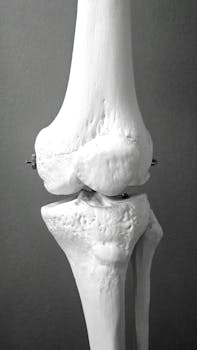A balanced and well-managed diet is crucial for individuals with type 1 diabetes, commonly referred to as t1d diet. It helps maintain steady blood glucose levels and can significantly impact one’s overall health. In this guide, we will explore the essential elements of a T1D-friendly eating plan, offering practical advice and tips for those managing type one diabetes.
Understanding the T1D Diet
Type 1 diabetes occurs when the body cannot produce insulin, necessitating careful management of blood sugar through diet, exercise, and insulin therapy. A T1D diet aims to stabilize blood glucose levels, prevent complications, and support overall well-being. Key focuses include carbohydrate counting, monitoring portion sizes, and making healthy food choices.
Carbohydrate Counting
Carbohydrates have the most immediate impact on blood sugar levels. For individuals with type one diabetes, understanding how to count carbs is essential. This process involves keeping track of the number of carbohydrates consumed with each meal. Tools like nutrition labels, mobile apps, and online resources can assist in accurately tallying carbohydrate intake.
Monitor Portion Sizes
Portion control plays a significant role in managing blood sugar levels effectively. By consuming balanced amounts of carbohydrates, proteins, and fats, individuals can prevent spikes and dips in glucose levels. Smaller, more frequent meals can also aid in maintaining more consistent sugar levels throughout the day.
Making Healthy Food Choices
Choosing the right foods is vital in a T1D diet plan. Lean proteins, healthy fats, high-fiber foods such as whole grains, fruits, and vegetables are essential components. These foods not only help with blood sugar control but also provide essential nutrients needed for good health. It’s advisable to limit processed foods, sugary beverages, and high-sodium items.
Meal Planning and Preparation
A well-structured meal plan can simplify managing type one diabetes food choices. Preparing meals in advance ensures that balanced, nutritious options are available, reducing the temptation to make less healthy food choices. It’s helpful to work with a registered dietitian to tailor meal plans that suit individual preferences and lifestyle.
Incorporating healthy snacks is also key. Opt for snacks like nuts, seeds, yogurt, and whole grains that complement the main meals and help maintain energy levels.
Hydration Matters
Proper hydration is another crucial aspect of the T1D diet. Water is the best choice, but other options like herbal teas and sugar-free drinks can also contribute to hydration while having minimal impact on blood sugar levels. Limiting sugary drinks and alcohol is recommended, as they can cause undesirable fluctuations in glucose levels.
The Role of Glycemic Index
The glycemic index (GI) measures how quickly a food can raise blood glucose levels. Foods with a low GI release energy more slowly and help maintain steadier sugar levels. Choosing low-GI foods like legumes, nuts, and most vegetables is beneficial for those following a T1D diet. Balancing high-GI foods with low-GI choices can prevent dramatic spikes in blood sugar.
Incorporating Exercise
Physical activity is an important component of managing type 1 diabetes. Exercise can enhance insulin sensitivity and assist with blood sugar control. Whether it’s walking, cycling, or engaging in more structured activities like gym workouts, regular exercise offers numerous benefits. It’s crucial to monitor blood sugar before, during, and after exercise to prevent hypo- or hyperglycemia.
Consulting with healthcare providers can provide insights into the safe and effective integration of exercise into the daily routine. Additionally, adjusting insulin doses and meal timings around exercise times may be necessary to maintain optimal glucose control.
External Resource: Learn More About Type 1 Diabetes
For additional information about type one diabetes, its causes, symptoms, and management, visit this detailed resource.
Consulting with Healthcare Professionals
Personalized advice from healthcare professionals is invaluable in managing type 1 diabetes. Regular consultations with endocrinologists, diabetes educators, and dietitians ensure that the dietary plan aligns with personal health goals. They can provide guidance on dietary adjustments, proper insulin usage, and address any arising concerns.
For a deeper understanding of living with diabetes, visit our comprehensive guide: Type 1 and Type 2 Diabetes: The Ultimate Guide for 2024.
In conclusion, maintaining a balanced T1D diet is integral to managing type one diabetes effectively. By focusing on nutrient-rich foods, proper portion sizes, and regular physical activity, individuals can achieve balanced blood sugar and improved overall health. Consultation with healthcare providers remains vital for personalized nutrition advice.
- The T1D diet focuses on blood sugar stabilization.
- Carbohydrate counting is essential for managing glucose levels.
- Healthy food choices support overall well-being.
- Exercise and hydration are key components of a balanced T1D plan.
- Consult healthcare professionals for personalized dietary guidance.
What is a T1D diet?
A T1D diet is designed to help manage blood glucose levels through balanced food choices, carbohydrate counting, and careful portion control, tailored to the needs of those with type 1 diabetes.
Why is carbohydrate counting important for type 1 diabetes?
Carbohydrate counting is crucial because carbohydrates significantly impact blood sugar levels. Understanding carb content allows individuals to adjust insulin doses accordingly, helping to maintain stable glucose levels.
Are there forbidden foods in a T1D diet?
No foods are off-limits, but moderation is key. It’s beneficial to limit processed foods, sugary snacks, and high-GI items, opting for balanced meals that include lean proteins, whole grains, and plenty of vegetables.
How does exercise fit into the T1D diet plan?
Exercise is important as it helps improve insulin sensitivity and contributes to overall glucose control. Regular physical activity should be paired with careful monitoring of blood sugar levels and possibly adjusted insulin dosages.
Should I work with a dietitian for a T1D diet?
Working with a dietitian experienced in diabetes care is advised. They provide personalized meal planning, advice on carbohydrate counting, and support to ensure the diet meets nutritional needs and health objectives.






